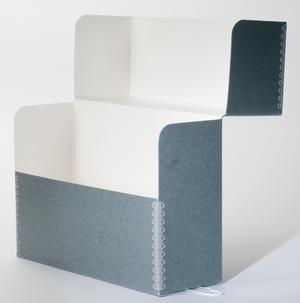- Contact Us
- Emergency Information
- Facility Rental
- Jobs
- Site Map
- Site Policies
- Web Accessibility
- Web Privacy
- © Harry Ransom Center 2025

SIGNATURES
Identified individuals are represented by a biographical sketch, a list of connections to other signatures, and, in most cases, an artifact from the Ransom Centers collections. Help us identify more signatures by submitting your suggested identification.
X
X
THE DOOR
 Location on door: front, panel 2
Location on door: front, panel 2
EDWIN ARLINGTON ROBINSON
A generation older than many of the visitors who signed the bookshop's door, the major poet Edwin Arlington Robinson was at the height of his long career when the shop opened. Originally from Maine, Robinson moved to Greenwich Village in the late 1890s, and lived there for the rest of his life. He wrote prolifically in the early 1920s, and his Collected Poems appeared in 1922. This volume won Robinson the first Pulitzer Prize in poetry, and he won the prize twice more in the same decade, for The Man Who Died Twice (1925) and for Tristram (1927), the work that gained him the most popular acclaim in his own day. Robinson died of cancer in 1935.

This letter, from an elder statesman of verse to a much younger poet, was written from the MacDowell Colony in Peterborough, New York, where Robinson spent many of his summers. He likely writes in response to Jeffers's volume Tamar and Other Poems, published in New York in 1924, a volume that received much attention from major critics at the time and established Jeffers's reputation. His previous book, Californians, had been published in 1916. Robinson and Jeffers both excelled in narrative verse, and Robinson's praise for Jeffers in this letter is perhaps due in part to that shared affinity. Robinson, known for his mastery of traditional verse forms, does take the younger poet to task for his formal experimentation. A tentative transcription of the letter follows: "Let me thank you for your book and for the pleasure I have had in reading it. You have an amazing fertility and daring, and while I don't always like your form, I have to admire your power. I wish, rather uniformly powerless, that you would write a small book of sonnets. I am already familiar with your other book called 'Californians', in which I saw great 'promise'--if you won't poison me for using that word. Yours very sincerely, E. A. Robinson"

